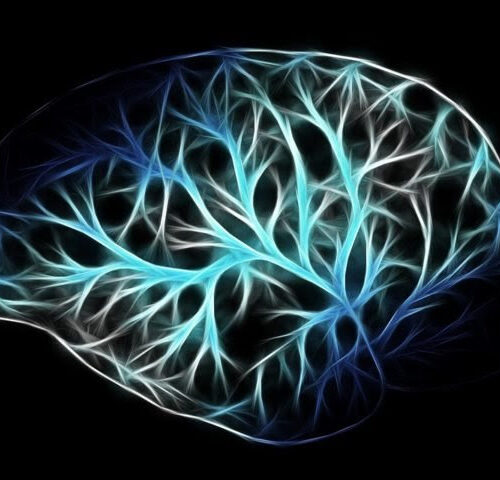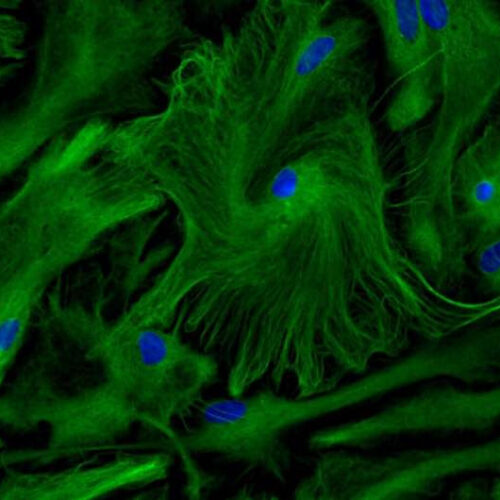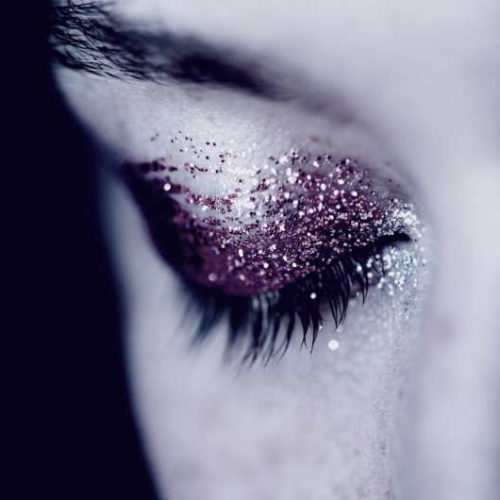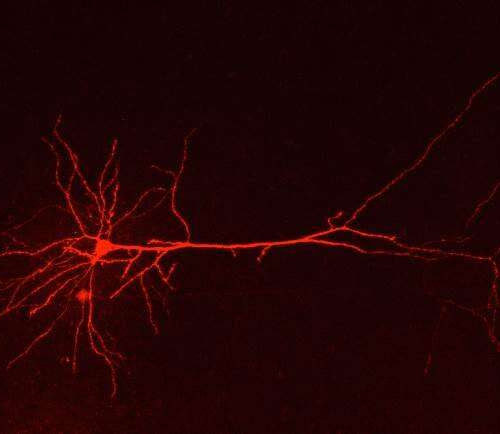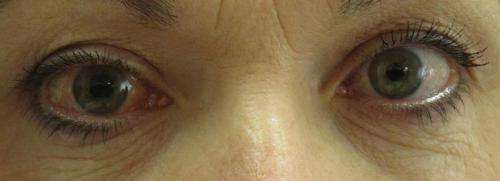The blood-brain barrier wraps blood vessels where they pass through the central nervous system, controlling the passage of cells and molecules into and out of the brain. The blood-brain barrier becomes disrupted with age, allowing unwanted molecules into the brain, where they can spur chronic inflammation and dysfunction contributing to neurodegeneration. Researchers here investigate the response of astrocytes and microglia, supporting...
Tag: <span>Astrocytes</span>
The key role of astrocytes in cognitive development
by Institut National de la Sante et de la Recherche Medicale Primary culture of astrocytes. Credit: © Inserm/Ruiz, Anne-Laure Astrocytes have long been considered as mere support cells for neurons. In recent years, the study of astrocytes has grown, gradually revealing their importance in brain function. Researchers from Inserm, CNRS, and Collège de France at the...
Astrocytes derived from patients with bipolar disorder malfunction
Date: March 4, 2021 Source: Cell Press Brain cells called astrocytes derived from the induced pluripotent stem cells of patients with bipolar disorder offer suboptimal support for neuronal activity. In a paper appearing March 4th in the journal Stem Cell Reports, researchers show that this malfunction can be traced to an inflammation-promoting molecule called interleukin-6...
Astrocytes derived from patients with bipolar disorder malfunction
by Cell Press Credit: Unsplash/CC0 Public Domain Brain cells called astrocytes derived from the induced pluripotent stem cells of patients with bipolar disorder offer suboptimal support for neuronal activity. In a paper appearing March 4th in the journal Stem Cell Reports, researchers show that this malfunction can be traced to an inflammation-promoting molecule called interleukin-6 (IL-6), which is secreted...
Genetic malfunction of brain astrocytes triggers migraine
by University of Zurich Neuroscientists of the University of Zurich shed a new light on the mechanisms responsible for familial migraine: They show that a genetic dysfunction in specific brain cells of the cingulate cortex area strongly influences head pain occurrence. Migraine is one of the most disabling disorders, affecting one in seven people and...
Star-shaped brain cells may play a critical role in glaucoma
by NYU Langone Health After a brain injury, cells that normally nourish nerves may actually kill them instead, a new study in rodents finds. This “reactive” phenomenon may be the driving factor behind neurodegenerative diseases like glaucoma, a leading cause of blindness. Led by researchers at NYU Grossman School of Medicine, the study examined what...
Genetic variation in a brain-cleansing water channel affects human sleep
by Public Library of Science The reason why we sleep remains an unresolved question of the 21st century. Research by Sara Marie Ulv Larsen, Sebastian Camillo Holst and colleagues from the Neurobiology Research Unit at the University Hospital Copenhagen, published this week in the open access journal PLoS Biology, now shows that the depth of...
Function and Characteristics of Astrocytes in Disease and Development
Sponsored Content by Axol Bioscience Ltd Characteristics of Human Astrocytes Astrocytes, also known as astroglia, are characterized by their star-like shape and are the most abundant cell type in the brain. They have important roles in the blood-brain barrier function and in synaptic activity, and are closely linked to neurons. The study of astrocytes using in vitro co-culture models is becoming more important...
Astrocytes protect neurons from toxic buildup
by Howard Hughes Medical Institute Astrocytes are overtaxed neurons’ pit crew. The brain cells collect damaged lipids secreted by hyperactive neurons, then recycle those toxic molecules into energy, researchers at the Howard Hughes Medical Institute’s Janelia Research Campus report May 23, 2019, in the journal Cell. It’s a mechanism to protect neurons from the damaging side effects of overactivity. And it’s another important role for astrocytes, which support neurons in various...
New method grows brain cells from stem cells quickly and efficiently
Researchers at Lund University in Sweden have developed a faster method to generate functional brain cells, called astrocytes, from embryonic stem cells. Astrocytes play a significant role in neurodegenerative diseases. The new method reduces the time required to produce the cells from months to two weeks, and the study has been published in Nature Methods. “This means...

